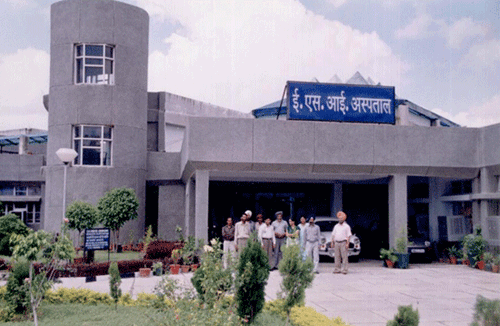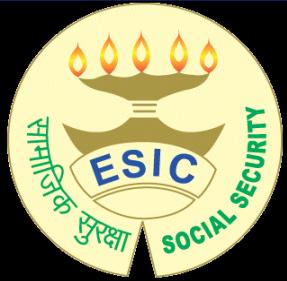This article is written by Madhurima Dutta from RMLNLU, Lucknow.

ESIC is an autonomous corporation under Ministry of Labour and Employment, Government of India. Employees’ State Insurance is a self-financing social security and health insurance scheme for Indian workers. For all employees earning Rs 15000 or less per month as wages, the employer contributes 4.75 percentages and employee contributes 1.75 percentages, total share 6.5 percentage. This fund is managed by the ESI Corporation (ESIC) according to rules and regulations stipulated there in the ESI Act 1948.
The industrial sector plays a major role in improving the wealth of a country. In order that industries focus on their core areas, i.e., best possible utilisation of the available resources and improving the productivity of the factors of production, without worrying about protecting the workforce from the physical and financial distress arising out of sickness, maternity, employment injury, etc, the ESI Scheme was devised.
The employers play a major role in the functioning of the Scheme, through registration of its employees, remittance of contribution and through compliance with the provisions of the Act.
Administration
At the national level, the ESIC Scheme is administered by a statutory body called the ESIC (Employees’ State Insurance Corporation), set up under ESI Act of 1948. This statutory body comprises of representatives on behalf of employers, employees, the Central Government, various State Governments, medical professionals and the Parliament members.
A Standing Committee is constituted from amongst the members of the Corporation that acts as the Executive Body for the administration and implementation of this ESIC Scheme.
The Medical Benefit Council which is a statutory body, advises ESIC pertaining to matters connected with the provision of medical care/healthcare to the beneficiaries of this Scheme. The Chief Executive of the ESIC is the Director General who is also ex-officio member of the Corporation and of its Standing Committee.
As part of the decentralization process, Regional Boards have been constituted in each State of Indian Union. To make this scheme more effective and to make the entire process more accountable, Local Committees have been formed as advisory bodies at the grass-root level for smooth functioning of the ESIC Scheme.
Infrastructure
To manage day-to-day administration and operations, the headquarters of ESIC is situated at New Delhi. Besides headquarters, there are Regional Offices and Sub-Regional Offices in various states of India along with 800 and above Branch Offices at industrial towns throughout India.

Registration under ESIC Act
Registration is the process by which every employer of an establishment/ company/ organization and its every employee who are employed for wage purposes are identified for the purpose of this ESIC Scheme and their individual records are set up for them.
The first stage in this process is to obtain the particulars about each factory/shop/establishment that can be covered under ESIC Act.
Thereafter to identifying such an organization, allotment of a number i.e. Code No. is carried out by the Regional Office.
The above mentioned process helps in maintaining track of contributions/assistance payable/paid and the associated obligations of the employers.
Consequent step is the registration of employees of covered factories by the Regional Office and identifying such individuals by allotment of a number i.e., insurance number.
This procedure facilitates in setting up essential records for documenting the benefits for which the insured employee may be entitled under this ESIC Scheme based on the eligibility criteria.
An individual record of every employer/employee will facilitate smooth conversion in future from time to time. It will operate as a regulator and keep a proper track for maintaining the records for the purpose of obtaining compliance from the employers and providing benefits to concerned insured persons.
Registration of Employers
Section 2A of the ESI Act states as under:
2A. Registration of factories and establishments-Every factory or establishment to which this Act applies shall be registered within such time and in such manner as may be specified in the regulations made in this behalf.
1.3. As a follow-up of this provision in the Act, Regulation 10B has been inserted in the ESI (General) Regulations, 1950. This regulation is as follows:
10B – Registration of factories or establishments
The employer in respect of a factory or establishment to which the Act applies for the first time and to which an Employers’ Code No. is not yet allotted and the employer in respect of a factory or an establishment to which the Act previously applied but has ceased to apply for the time being, shall furnish to the appropriate Regional Officer not later than 15 days after the Act becomes applicable, as the case may be, to the factory or establishment, a declaration of registration in writing in form 01(hereinafter referred to as employers’ registration form).
The employer shall be responsible for the correctness of all the particulars and information required to be furnished on the employer’s registration form.
The appropriate Regional Office may direct the employer who fails to comply with the requirements of paragraph (a) of this regulation within the time stated therein, to furnish to that office employer’s registration form duly completed within such further time as may be specified and such employer shall, thereupon, comply with the instructions issued by that office in this behalf.
Upon receipt of the completed employer’s registration form, the appropriate Regional Office shall, if satisfied that the factory or the establishment is one to which the Act applies, allot to it an employer’s code number (unless the factory or the establishment has already been allotted an employer’s code number) and shall inform the employer of that number.
The employer shall enter the employer’s code number on all documents prepared or completed by him/her in connection with the Act the rules and these regulations and in all correspondence with the appropriate office.
Advantages for employers
Employers are absolved of all their liabilities of providing medical benefits to their employees and their family members or dependants in kind or in the form of fixed cash allowance, lump-sum grant, reimbursement of actual expenses, or opting for any other medical insurance policy of limited scope unless it is a contractual obligation of the employer.
Employers are granted exemption pertaining to the applicability of Maternity Benefit Act, Workmens’ Compensation Act etc in respect of employees covered under the ESIC Scheme.
This results in employers possessing a productive and well-secured workforce, at their disposal which is an essential ingredient for better productivity of an organization.
Employers are absolved of any responsibility in times of physical distress of their employees or workers such as employment injury, sickness or physical disablement thereby resulting in loss of wages since the responsibility of paying cash benefits shifts from the employer to the ESIC Corporation in respect of insured employees.
Any amount or sum paid by way of contribution under the ESIC Act is deducted in computing ‘Income’ under the Income Tax Act.
Coverage of factory/establishment
In the first instance, this Act is applicable to all non-seasonal factories utilizing power and employing ten or more individuals, as well as is applicable to non-power using manufacturing organizations and establishments employing 20 or more persons for wages and falling under the ambit of an implemented geographical area. As of now, employees of establishments, companies or factories that fall within the ambit of coverage and earning wages not exceeding Rs. 10,000/- per month are covered under this ESIC Scheme.
Under Section 1(5) of the Act, the provisions of ESIC Act have been extended to the following classes of establishments:
- Shops and Commercial establishments
- Cinemas, including preview theatres
- Hotels & Restaurants
- Clubs
- Newspaper establishments
- Road Motor Transport establishments
Under Section 1(5) of the ESIC Act, the Indian Government is empowered to extend the Scheme to any other establishment or class of establishments, commercial, industrial, agricultural or otherwise, with the passage of time. A State Government may extend the provisions of this Act in consultation with the ESIC and with the prior approval of the Central Government, after submitting six months notice of its intention in the official gazette; provided that where the provisions of this Act have been brought into force or implemented in any part of State, the said provisions shall stand extended to any such establishment or class of establishments within that part, if such provisions have already been extended to similar establishments or class of establishments in another part of that same State.
Finances
This ECIS Scheme is primarily funded by contributions raised from insured employees and their employers in the implemented areas across India as a small but specified percentage of wages payable to such employees.
Employees in receipt of an average daily wage of Rs 40/- or less are exempted from payment of their share of contribution but are entitled to all social security benefits under this scheme.
The contribution rates are as follows:
Employees’ contribution – 1.75 % of wages
Employers’ contribution – 4.75 % of wages
Under the provisions of this Act, the State Governments contribute 12.5 percent of expenditure on medical expenses incurred on ESIC beneficiaries in their respective States within the per capita ceiling. Any expenditure exceeding this ceiling is borne entirely by the respective state governments.
The contributions made by employees and their employers are deposited in a common pool known as the ESIC Fund that is utilized for payment of cash benefits to the insured persons and their family members including dependants in addition to providing medical facilities to the beneficiaries under this scheme. The administrative and other expenses of the Corporation are also met from this pool fund.
Exemptions
The provisions of the ESIC Act are not applicable to factories or establishments under the control of Central Government / State Governments because such employees working with PSUs are in receipt of social security benefits that are substantially similar or superior to the benefits provided under the ESIC Act. The case of each such Public Sector Undertaking (PSU), is decided on merit by comparing the quality and quantity of benefits being provided to the employees by the concerned managements with those being conferred and admissible under the ESIC Act.
Contributions
The amount payable to the Corporation by the Principal Employer in respect of an employee is termed as Contribution. It comprises the amount payable by the employee and the employer.
It is obligatory on the part of the employer to calculate and remit ESIC contribution that comprises of employers’ share 4.75% plus employees’ share of 1.75% that needs to be paid on or before 21st of the following month to the month to which the salary is related. For example suppose if an employee who draws up to Rs.70/- as daily average wage, then such an employee is granted exemption from payment of his/her share of contribution. The employer is however required to pay employer’s share of 4.75% of the salary receivable by the employee.
Recovery of contribution
In the first instance the Principal Employer is required to pay employers’ share of contribution in respect of every employee whether employed directly or through immediate employer. The employees’ share may thereafter, be recovered by making deduction from their wages for the wage period for which their contribution is made, however is payable. No such deduction may be made from any wages to their employees other than those relating to the period in respect in which contribution is payable.
Medical Benefit
The ESIC Scheme provides wide-ranging variety of medical treatment to insured individual and their dependants (including their family members). This is made possible through a network of ESIC Dispensaries & Panel Clinics, Diagnostic Centres and ESIC Hospitals etc. Super-speciality medical facilities are provided to the beneficiaries through advanced super-speciality medical institutions that are recognized and empanelled for the purpose on referral basis. The ESIC has set up a Revolving Fund in most of the States across India for ensuring smooth flow of funds for facilitating super-speciality treatments of ESIC beneficiaries.
All the insured individuals and their dependants including their family members under ESIC scheme are entitled to free, full and comprehensive medical care under the ECIS Scheme. The Medical benefit package covers all aspects of healthcare ranging from primary to super-speciality facilities.
Sickness Benefit
Sickness Benefit represents cash payments made to an insured person periodically during the period of certified sickness occurring in a benefit period when insured person undergoes medical treatment and attendance with abstention from work on valid medical grounds.
The maximum duration of Sickness Benefit is 91 days in two consecutive benefit periods. However, there is a waiting period of 2 days which is waived if the insured person is certified sick within 15 days of the spell for which sickness benefit was last paid. The sickness benefit rate is approximately equivalent to 50% of the average daily wages of the insured person.
Extended Sickness Benefit
After exhausting the Sickness Benefit payable up to 91 days, an insured person if suffering from Cancer, Tuberculosis, Leprosy, Mental or malignant diseases or any other specified long-term ailment, then such an employee is entitled to Extended Sickness Benefit at a higher cash benefit rate of about 70% of average daily wage for a period of two years.
Enhanced Sickness Benefit
For undergoing sterilization operations for the purpose of family planning, insured persons are eligible to Enhanced Sickness Benefit which is double the rate of sickness benefit.
Maternity Benefit (Section 50 of ESI Act)
Maternity benefit comprises of periodical cash payments to an insured woman as certified by a duly appointed medical officer or mid wife in cases such as confinement or miscarriage or sickness arising on account of pregnancy, confinement, premature birth of child or miscarriage.
Disablement Benefit
Disablement benefit is admissible for disablement that is caused by employment injury. At the first instance, Temporary Disablement Benefit (TDB) is payable as long as the temporary disability lasts. If the employment injury results in partial or total/permanent disability, then Permanent Disablement Benefit (PDB) is payable till the death of the insured individual.
No contributory conditions have been prescribed for this benefit.
Dependant Benefit
Dependants’ benefit consists of periodical payments to dependants or family members of an insured individual who dies on account of an employment injury sustained as an employee under the ESIC Act. There are no contributory conditions or any criteria in order to qualify for such benefits. Thus, in case in an unfortunate or unforeseen incident suppose even if an individual dies of employment injury even on the first day of his employment, his dependants or family members are entitled to the aforesaid benefit.
Funeral Expenses
The funeral expenses are made to meet the expenditure incurred on the funeral of deceased insured individual. This amount is paid either to the eldest surviving member of the family or in his/her absence to that individual who actually incurs the funeral expenses.
 Serato DJ Crack 2025Serato DJ PRO Crack
Serato DJ Crack 2025Serato DJ PRO Crack









 Allow notifications
Allow notifications



thanks for giving information it helps me. esi registration procedure
really informative thanks